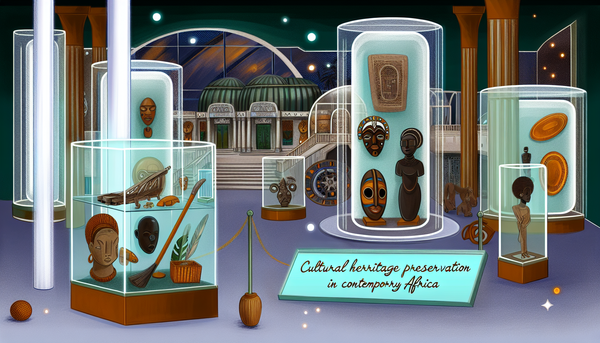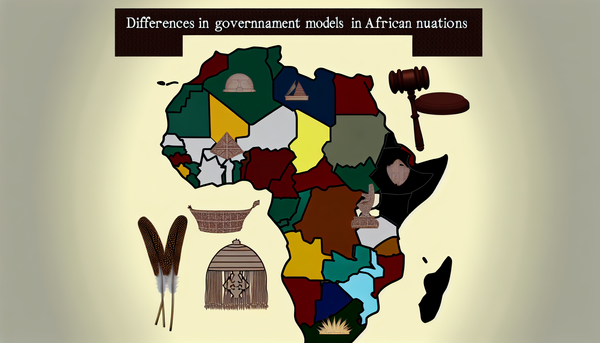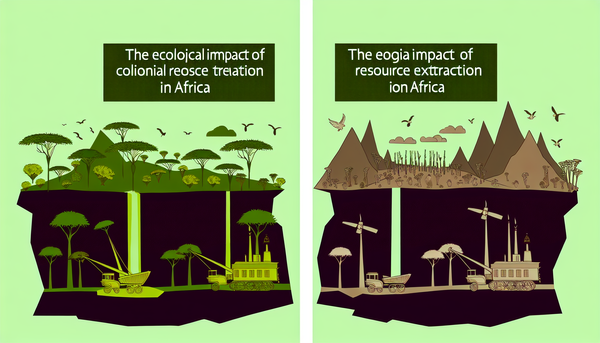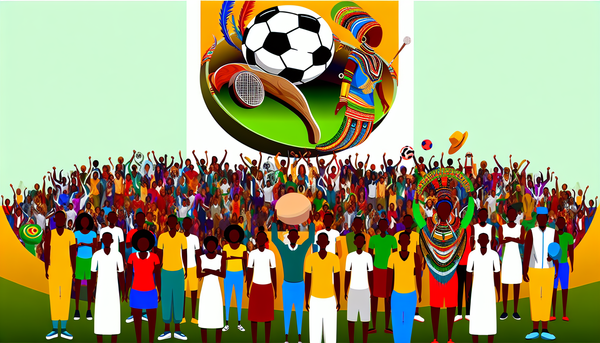The Historical Role of Kinship in African Societies
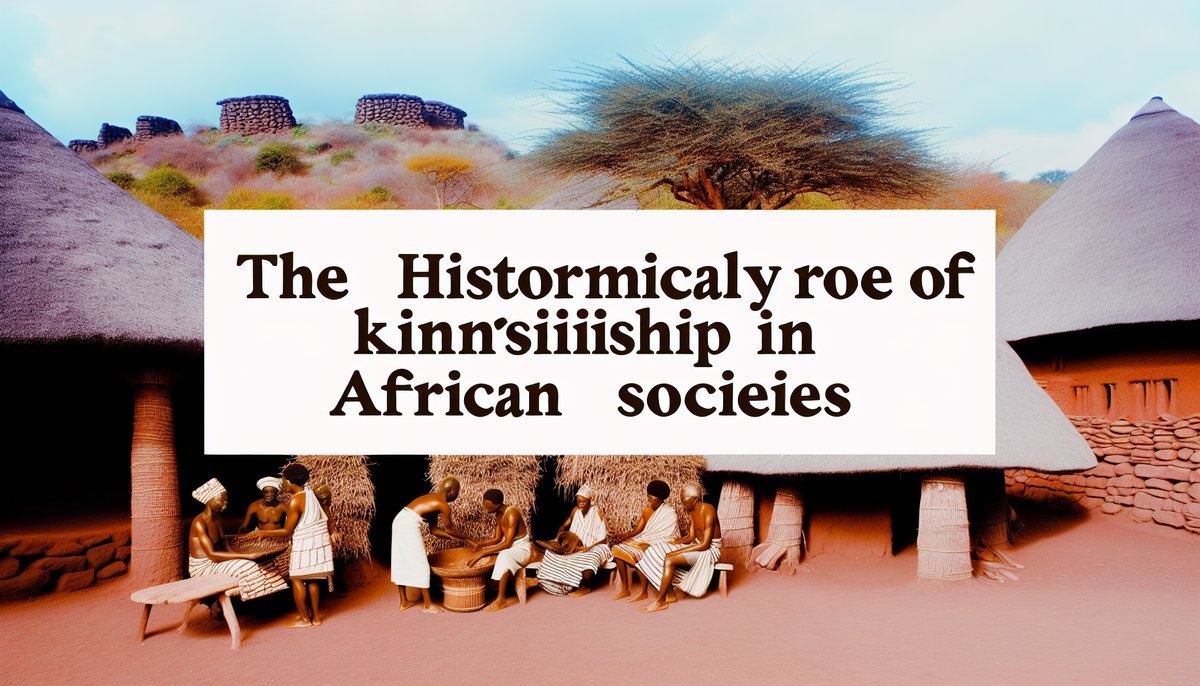
Traditional Kin Structures and Their Functions
In African societies, traditional kin structures form the backbone of social organization and community life. These structures are often defined by complex networks of relationships based on blood ties, marriage, and adoption. Family units typically extend beyond the nuclear model, encompassing a wider array of relatives such as aunts, uncles, cousins, and grandparents, often living in close proximity or within the same household.
The primary function of these kin structures is to provide support and security to members. In times of need, whether it's financial hardship, childbirth, or illness, extended family members come together to offer assistance. This mutual aid fosters a sense of belonging and communal responsibility, enabling individuals to thrive within their communities.
Additionally, traditional kinship ties often dictate social and moral expectations. Elders, for instance, usually serve as decision-makers and mediators in disputes, while younger generations are taught to respect their lineage and uphold family honor. Furthermore, kinship plays a crucial role in cultural transmission, as values, traditions, and knowledge are passed down through generations, ensuring the continuity of cultural identities. In essence, the traditional kin structures are not merely social frameworks; they are integral to the survival and cohesion of African societies.
Impact of Lineage and Ancestry on Social Norms
Lineage and ancestry hold significant sway over social norms in many African societies, influencing various aspects of daily life and cultural practices. The concept of lineage often determines an individual's identity, social status, and role within the community. In many cultures, belonging to a particular clan or family can dictate access to resources, leadership positions, and even eligibility for marriage. This deep-rooted connection to ancestry fosters a sense of pride and responsibility among members, as they are expected to uphold the traditions and values passed down through their forebears.
In these societies, social norms are often intertwined with concepts of respect for elders and the deceased, reflecting ancestral reverence. Families typically honor their ancestors through rituals, including ceremonies that celebrate their lives and invoke their presence in daily affairs. Such practices reinforce a collective memory, establishing behavioral expectations that promote unity and social cohesion.
Moreover, the emphasis on lineage affects conflict resolution and governance. Decisions are often made in consultation with family heads and elders, ensuring that actions align with cultural and familial obligations. Ultimately, the impact of lineage and ancestry shapes not only individual identities but also the overarching social fabric, guiding interactions and reinforcing communal bonds.
Marriage Customs and Family Alliances
Marriage customs in African societies often extend beyond the union of two individuals, serving as vital instruments for forming strategic alliances between families and clans. These unions are celebrated with elaborate ceremonies that incorporate age-old traditions, rituals, and communal participation, emphasizing the significance of family involvement in the marital process.
In many cultures, marriages are not solely about romantic love; they are transactions designed to strengthen social ties and ensure the continuity of lineage. For instance, bride price, or lobola, is a common practice where the groom's family pays a negotiated amount to the bride's family, symbolizing respect and the establishment of bonds between families. This tradition highlights the belief that marriage is a communal affair, rather than an individual choice.
Furthermore, marriages often serve to solidify economic and political alliances. Families may arrange unions to enhance their status, wealth, or influence within the community, creating networks that benefit all parties involved. Such alliances are crucial for maintaining peace between clans and can involve negotiations that reflect the interests of both families. In essence, marriage customs in African societies are deeply interwoven with the fabric of familial relationships, reflecting both cultural values and practical considerations that shape community dynamics.
Inheritance Practices Across Different Cultures
Inheritance practices in African societies showcase a rich diversity that reflects cultural values, social structures, and historical contexts. These practices can generally be categorized into patrilineal, matrilineal, and bilineal systems, each influencing how property, status, and familial ties are passed down through generations.
In patrilineal societies, inheritance typically flows from fathers to sons, reinforcing male lineage and solidifying familial authority within the community. In these cultures, land and livestock often become crucial assets inherited by male heirs, creating economic stability and ensuring the lineage's continuity. Women, conversely, may have limited inheritance rights and are often expected to be economically supported by their husbands' families.
Matrilineal systems, on the other hand, trace lineage through the mother's side. In such cultures, women inherit property, and their sons may carry on the family name. This unique structure often grants women a more prominent role in decision-making and resource management.
Bilineal inheritance blends both systems, allowing for a more equitable distribution of wealth and responsibilities among children of both genders, reflecting contemporary shifts toward gender equality. Overall, inheritance practices not only define economic relationships but also serve to transmit values and cultural identities, shaping the social landscape of African societies.
Role of Kinship in Political Systems
Kinship plays a fundamental role in the political systems of many African societies, serving as a framework for governance and authority. In numerous cultures, political power is often concentrated within specific clans or families, with leadership positions typically inherited through established kinship lines. This system creates a hierarchical structure that reinforces loyalty and solidarity among members, which is essential for maintaining order and social cohesion.
In many traditional settings, community leaders or chiefs are selected based on their lineage, embodying the qualities and values of their ancestors. These leaders are expected to act as custodians of their community's heritage and to address disputes, allocate resources, and maintain peace. Their authority is legitimized through ancestral connections and the respect accorded to family ties.
Moreover, kinship networks are vital for political alliances. Marriages between influential families can strengthen relationships and create strategic partnerships, fostering unity and collaboration in governance. In times of conflict, kinship ties often dictate allegiance, as individuals rally around their relatives or clans, influencing political dynamics. Thus, kinship not only shapes leadership structures but also informs the complexities of power relations, illustrating its overarching significance in the political landscape of African societies.
Kin-Related Rituals and Their Societal Significance
Kin-related rituals in African societies serve as vital expressions of cultural identity, reinforcing the bonds within families and the broader community. These rituals, which may include naming ceremonies, marriage celebrations, and funerals, are not merely personal rites but significant communal events that reflect social values and collective memory.
Naming ceremonies, for instance, are profound occasions that celebrate the arrival of a new family member, often involving extended family and community participation. This event emphasizes the importance of lineage, as names are chosen to reflect ancestral heritage and cultural significance, grounding the child within their family's history.
Marriage rituals serve to strengthen ties between families, reinforcing social alliances and collective responsibilities. These ceremonies often highlight traditional customs, such as the giving of bride price, which symbolizes respect for the bride's family and signifies the merging of two lineages.
Funeral rites, on the other hand, honor the deceased and provide a space for collective mourning, allowing families to reflect on their lineage and the values passed down through generations. Such rituals facilitate communal healing and serve to reinforce the interconnectedness of life and death. In essence, kin-related rituals play a crucial role in maintaining cultural continuity, social cohesion, and the transmission of values within communities.
Changes in Kinship Patterns Due to Modernization
Modernization has profoundly impacted kinship patterns across many African societies, leading to transformations in family structures, social roles, and cultural practices. As urbanization and globalization accelerate, traditional extended families are increasingly giving way to nuclear families, reflecting a shift towards individualism and self-sufficiency. This transition often results in diminished intergenerational living arrangements, where younger members move to cities for employment opportunities, leaving behind the traditional support systems grounded in extended kinship.
The rise of modern communication and transportation technologies has also altered how kinship ties are maintained. While these advancements facilitate connections across distances, they can simultaneously weaken the physical presence and participation in familial rituals, diminishing the communal aspects that have historically characterized kinship interactions.
Furthermore, modernization may challenge traditional gender roles within kinship systems. Women, empowered by education and economic independence, are gaining more significant roles in decision-making and family dynamics. This shift has led to evolving expectations regarding inheritance and leadership structures, allowing for more equitable distributions of power.
Despite these changes, many communities continue to uphold essential elements of their kinship traditions, adapting them to new contexts. Ultimately, the interplay between modernization and kinship underscores the resilience of cultural identities while navigating the complexities of contemporary life.
